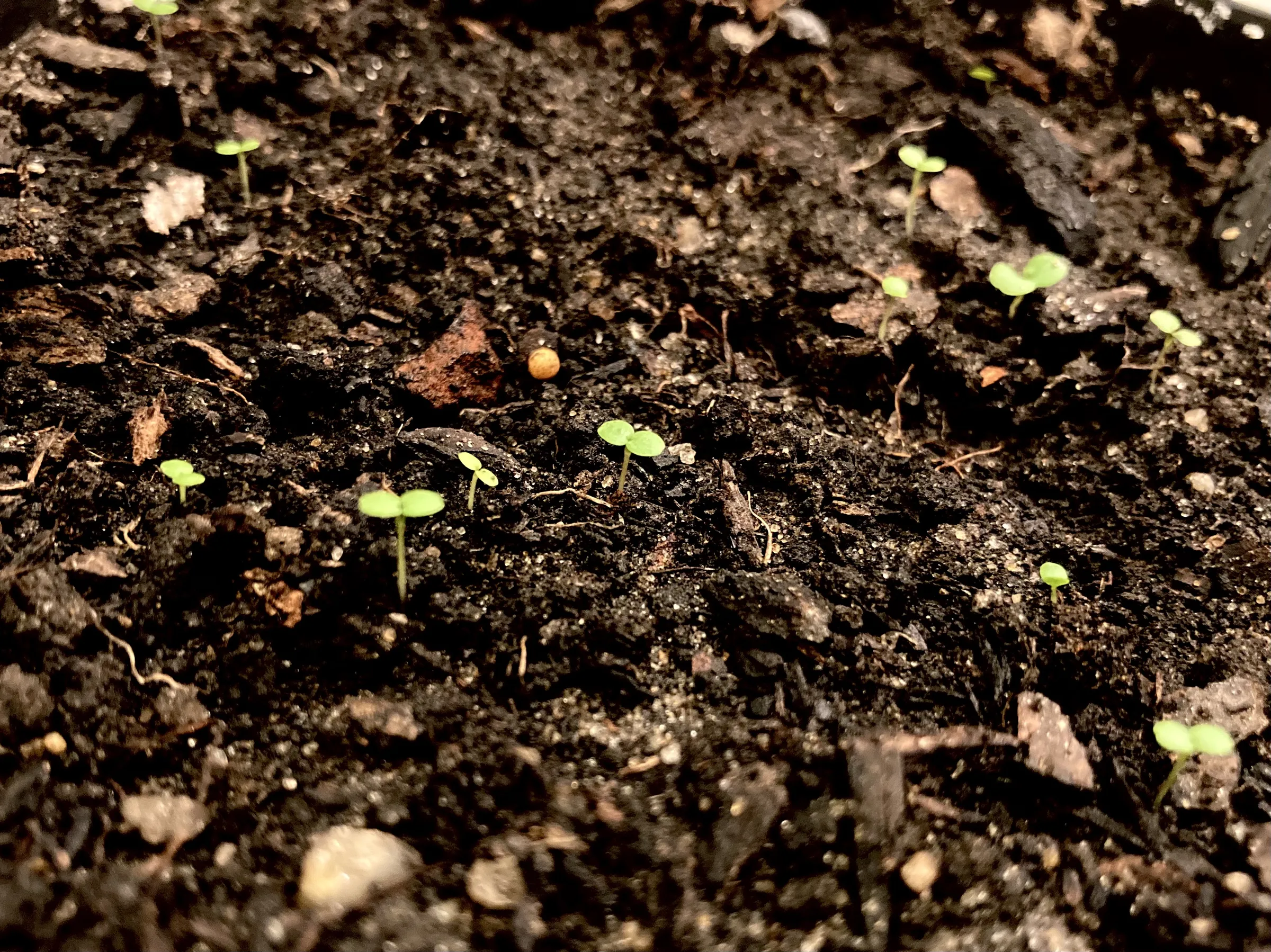0001 Sprouts
A few days ago, while I was tidying up a large plant pot full of garden miscellany, I happened upon a small, empty paper envelope. Or, what I initially thought to be a small, empty paper envelope.
If it had actually been empty, it wouldn't have been sitting in that large, metal plant pot in that small shed in southern New Jersey. It probably wouldn't have. It would have been, after being tossed into a recycling can in an unremarkable, midwestern city, carted up to the regional paper recycling plant in St. Paul, Minnesota. The envelope would no longer exist. It would have been transformed into something else. Maybe a sheet of paper or maybe something more interesting like an egg carton sitting in a grocery cooler or a thrilling page of a paperback novel tucked into a nondescript shelf in some quiet bookstore.
But, no, this paper envelope was not empty when I happened upon it a few days ago. It contained a small quantity of sweet Thai basil seeds. Not a handful, not even a spoonful or a thimbleful. A dozen at best.
Seeds, which a few years earlier, had been purchased from a small company in Fairfield, Maine. Seeds that were packed into this small paper envelope, placed inside of a larger envelope, and then mailed to a three-bedroom apartment in that small, midwestern city. Seeds that followed my family and I last fall when we moved to a narrow, brick row home in southwest Philadelphia. Seeds that joined us again this year when we moved to a slightly wider house across the Delaware River. Seeds that up until a few days ago were lying dormant in that small, nearly empty paper envelope.
Seeds, years old and mostly forgotten, which after a few days of rest in their new bed of dark, brown soil, have erupted into a tiny, delicate forest of future pad krapow.
Seeds, which were seeds and are now plants.
Plants that spend their lives under a purple-hued grow light, in a white, ceramic pot, in between some (non-Thai) sweet basil and two small Asia Ip shiso plants. Plants which will grow taller and more fragrant each day. Plants which will, with luck, outgrow their new home and someday retire to the small garden that stretches along the wooden fence on the north edge of a backyard where they can, finally, breath fresh air and feel the rain on their leaves.
The small, empty paper envelope, its work done, now sits in a recycling can in our kitchen. It awaits its new life, wondering what it might become.
